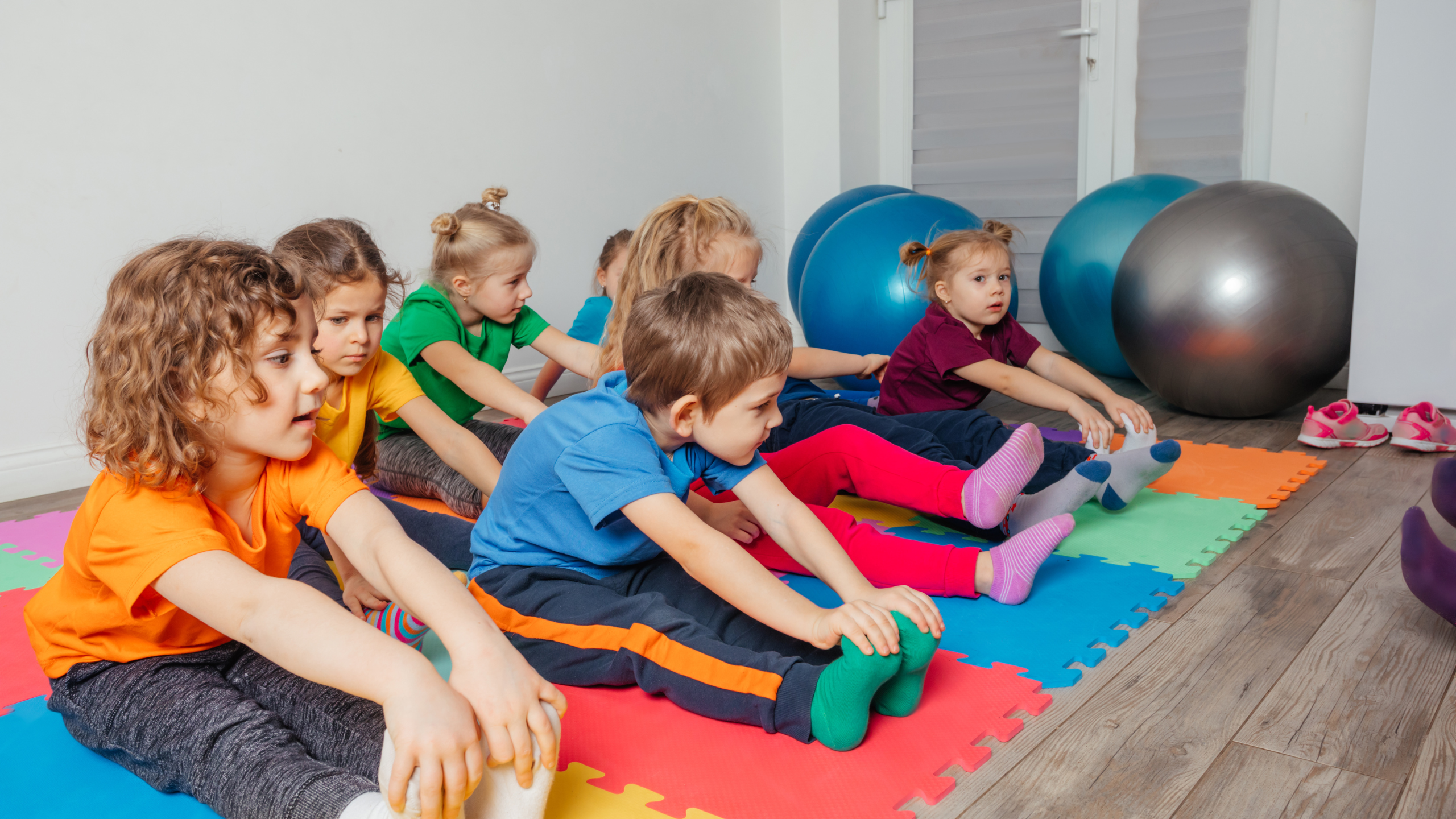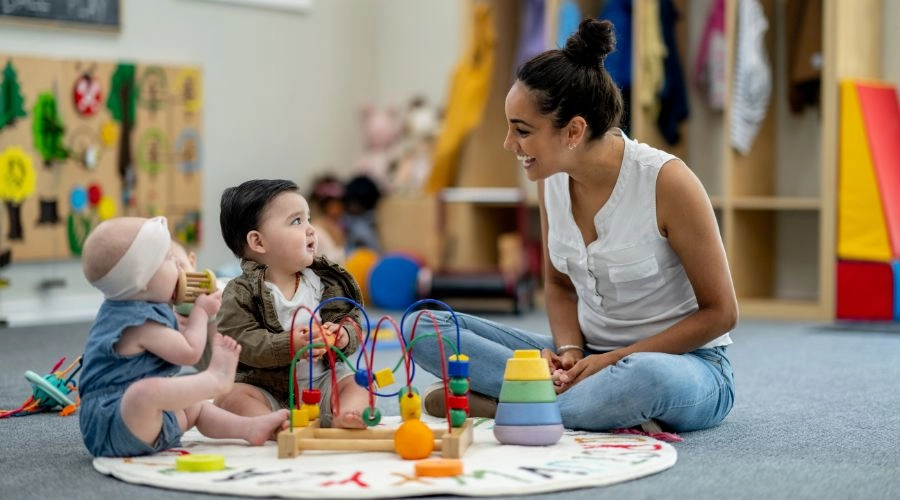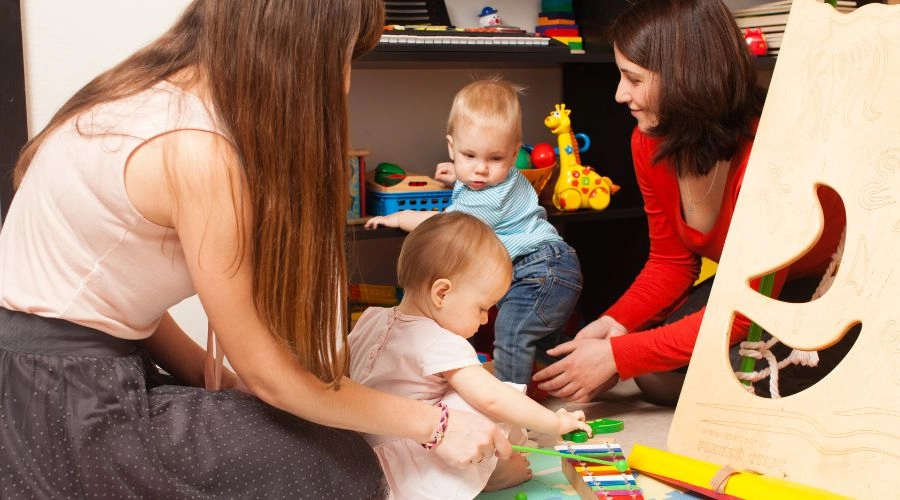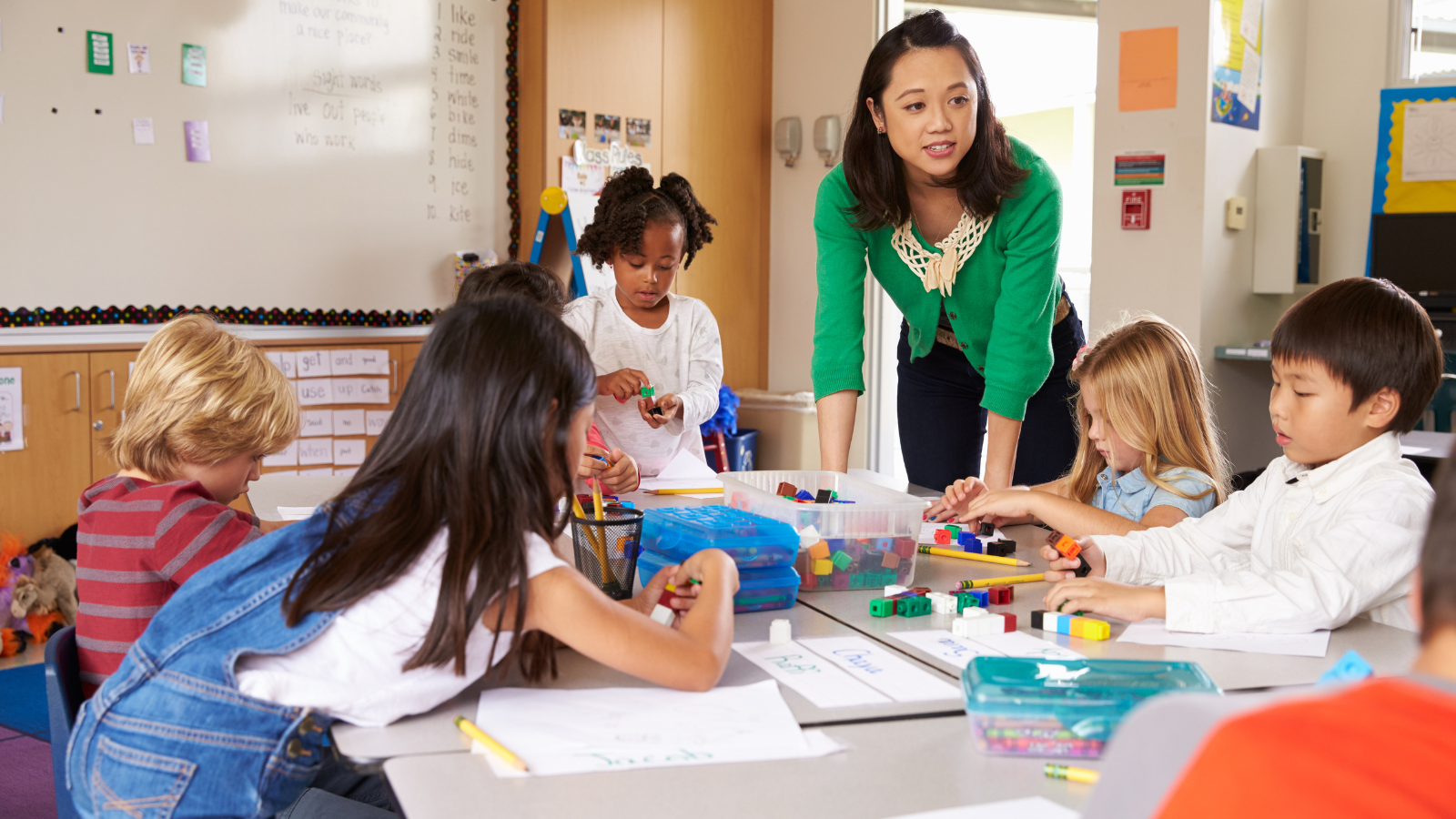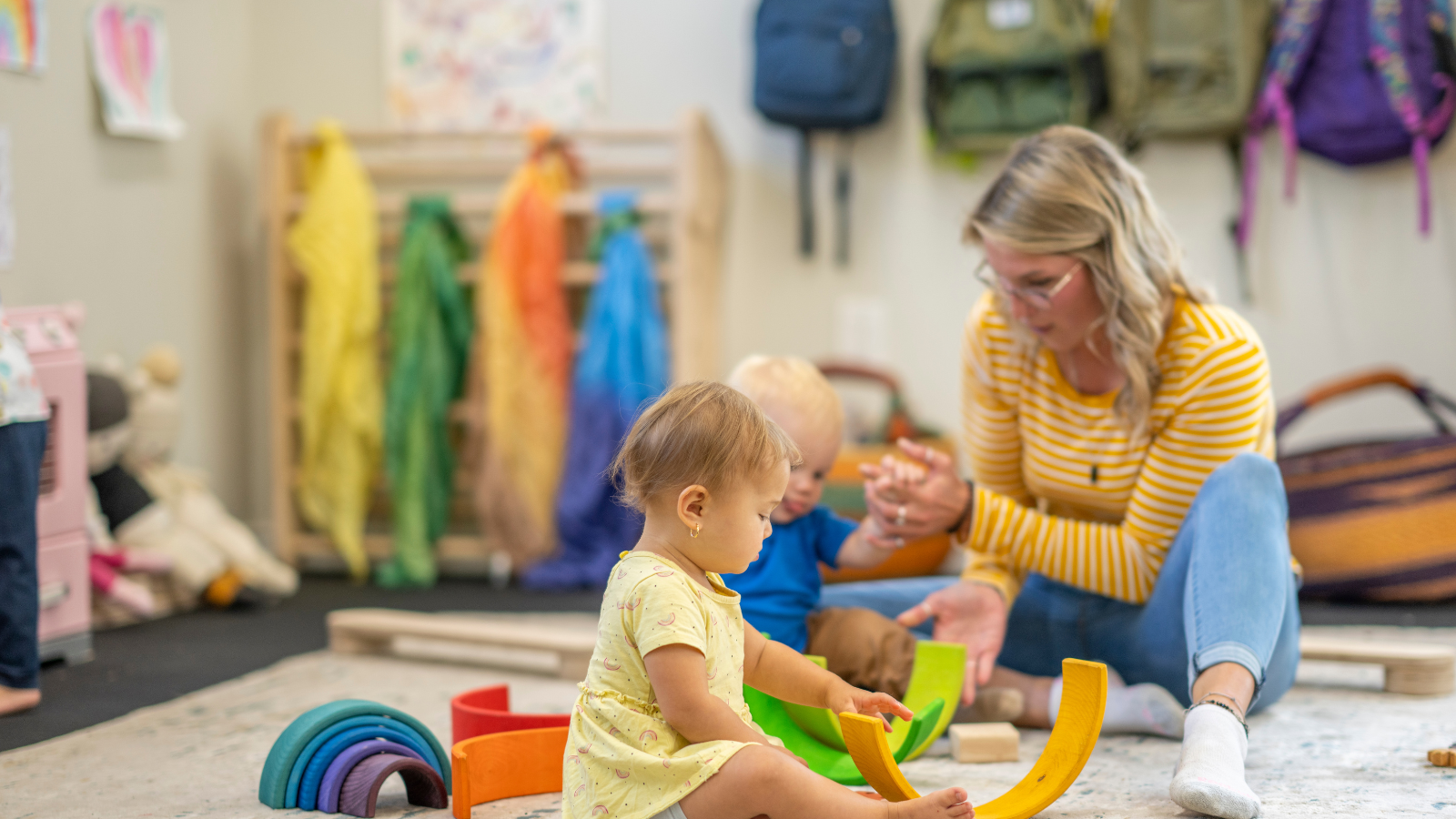One aspect of early childhood education stands out among different teaching methods: play-based learning. It’s all about understanding and embracing childhood’s natural curiosity and imagination. This discussion will explore why play-based learning is meaningful and how it helps kids learn and grow. Give your kids the best start with Jumpin’Jax High-Quality Preschool Education. We understand your child’s happiness is your priority, and we’re here to give you peace of mind. Our fully-licensed staff provides top-notch educational programs designed to help your child thrive. Located in northern Bergen County, we proudly serve communities like Ridgewood, Oradell, Emerson, and Paramus.
Principles of Play-Based Learning:
Play-based learning is deeply entrenched in the conviction that children are most receptive to learning when they are immersed in experiences that are not only meaningful but also intricately aligned with their individual interests and developmental requisites, unlike conventional instructional paradigms, which often emphasize rigid structures and predetermined outcomes, play-based learning advocates for spontaneity, autonomy, and the unfettered expression of creativity. By leveraging the innate propensity of children to engage in playful exploration, experimentation, and imaginative play, this approach empowers them to navigate their surroundings with confidence and curiosity, fostering a deeper understanding of the world and igniting a lifelong passion for learning.
Examples of Play-Based Activities:
- Sensory Bins: Sensory bins are like treasure chests filled with rice, sand, water, or dried beans. Children dive in to feel different textures, scoop and pour, and explore with their hands. This stimulates their senses and helps develop fine motor skills, like pouring and grasping.
- Pretend Play: Who doesn’t love being a superhero or a doctor for a day? Pretend play lets children step into different roles, whether saving the world as a firefighter or cooking up a storm as a chef. This imaginative play boosts creativity, helps them understand social roles, and hone their problem-solving skills.
- Building Blocks: The sky’s the limit with building blocks! Children stack, balance, and create blocks of all shapes and sizes. This activity encourages spatial awareness and hand-eye coordination and teaches them about cause-and-effect relationships as they figure out how to build sturdy structures.
- Art Exploration: Let your little artists unleash their creativity with various art supplies. Children can experiment with colors, textures, and shapes from painting to drawing and even collage-making. This helps develop fine motor skills, encourages self-expression, and fosters an appreciation for art.
- Outdoor Play: Nothing beats the joy of running, jumping, and playing outdoors! Whether climbing trees, kicking a ball, or simply enjoying the fresh air, outdoor play promotes physical development, improves gross motor skills, and allows children to explore the natural world.
- Storytelling and Puppetry: Let imaginations soar with storytelling and puppetry! Children can create stories and bring them to life using puppets or props. This enhances language development, sparks creativity, encourages communication, and nurtures narrative skills.
- Dramatic Play Centers: Transform your classroom into a world of imagination with dramatic play centers. Whether it’s a pretend kitchen, doctor’s office, or construction site, these themed play areas provide children with props and costumes to dive into imaginative scenarios. This encourages social interaction, role-playing skills, and collaborative play.
Benefits of Play-Based Learning:
Integrating play-based learning into daycare and preschool curricula offers a plethora of advantages. By harnessing children’s innate penchant for play, educators observe heightened levels of engagement, motivation, and enriched learning outcomes. Through play-based learning, children organically develop critical skills such as collaboration, communication, and problem-solving, which are essential for their holistic growth. Moreover, this approach lays a robust foundation for lifelong learning, instilling a love for exploration, discovery, and scholarly interest outside the classroom walls.
Recommendations for Implementation:
Professional Development: To make play-based learning work well, teachers must first learn about it. This means more than just knowing the basics; it means understanding how it works and how to do it right. Teachers can attend workshops, conferences, and online classes focusing on play-based learning. These resources teach them everything they need to know about how play helps kids learn and how to use it in their teaching. Talking with other teachers and getting advice from more experienced educators can also help learners learn how to engage in play-based learning effectively.
Curriculum Planning: Creating a play-based curriculum means carefully planning activities that help every child grow in all areas. Teachers start by determining what each child likes, where they are developing, and what they need to learn. Then, they plan activities that match each child’s interests and needs. Being flexible is important because things can change quickly in early education. A good curriculum lets kids naturally explore, discover, and learn, keeping them interested and excited. Also, teachers should keep checking how well things are going and adjust their plans as needed to ensure every child is learning well.
Conclusion
In the landscape of early childhood education, play-based learning emerges as a beacon of innovation and inspiration. By embracing the principles of curiosity, exploration, and imagination, educators can unlock the full potential of our youngest learners. Through sensory play, dramatic play, and open-ended art experiences, children embark on a journey of discovery that transcends traditional boundaries and cultivates a lifelong love for learning. As we continue to champion the power of play, we pave the way for a brighter future filled with endless possibilities for our children.

